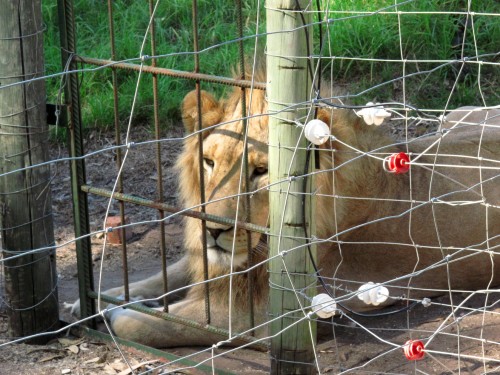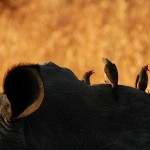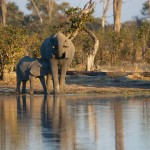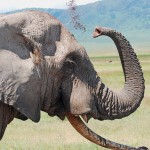By Andreas Wilson-Späth, courtesy of Conservation Action Trust

Does trophy hunting support wildlife conservation in Africa? The world’s most influential hunters’ association would like you to think so.
The annual convention of the Safari Club International (SCI) which took place in Las Vegas last week, featured an array of auctions for hunting safaris around the world. Attendees were able to bid on more than 50 trophy hunts in South Africa, featuring various species of buck alongside crocodile, African wild cat, hippo, baboon and more.
Also on the menu at the ‘Ultimate Hunters’ Market’ are leopard hunts in Zimbabwe, Tanzania and Namibia. Hundreds of wild animals are up for grabs at the convention which raises a major portion of the SCI’s annual operating budget.
The organisation, which is based in Tuscon, Arizona, was founded in 1973 and today has tens of thousands of members in well over a hundred affiliated chapters. It promotes the idea that revenues earned from trophy hunting contribute significantly to job creation and economic growth in host countries, as well as to wildlife conservation. However, there is little evidence to back up these claims.
What is not in dispute is that SCI members have hunted and killed thousands of wild African animals – many of them threatened and endangered. And while it routinely presents itself as an association intended to look after the interests of ordinary hunters, many of SCI’s members are extremely wealthy individuals who can afford to spend substantial sums of money on lavish overseas hunting trips every year and who are obsessed with ‘collecting’ rare trophies from around the globe.
The SCI encourages competitive trophy hunting through an elaborate system of awards in dozens of categories which its members can receive if they kill varieties of different animal species. Among them are the ‘African Big Five’ Grand Slam, the ‘Dangerous Game of Africa’ Grand Slam and the ‘African 29’ Grand Slam. The latter requires hunters to shoot 29 different species, including lion, leopard, elephant, rhino, buffalo, sitatunga, sable, roan and hippo.
So-called ‘Inner Circle’ awards are similar to grand slams but specify a much longer kill list of animals. To receive the ‘Animals of Africa’ Inner Circle award at the diamond level, for instance, a hunter needs to shoot animals from no fewer than 80 different species.
The most prestigious of all SCI achievement is the ‘World Hunting Award’ presented to individuals who have garnered awards in thirty of the lower categories. It has been given to nearly 100 people since 1995 and comes with an onyx and diamond encrusted gold ring that has been referred to as the “Superbowl-ring of hunting”.
One World Hunting Award recipient, a millionaire investment banker from Michigan, is on record as having killed, among others, 11 African elephants, 5 leopards, 13 lions, more than 36 Cape buffalo, 4 hippos, 1 southern white rhino, 5 spotted hyenas and 1 cheetah.
Documenting the practices of such individuals, King of Beasts is a revealing new film about trophy hunting of lions in Africa that follows prominent American hunter Aaron Neilson as he tracks down and kills the 15th lion in his career in Tanzania.
In September, Humane Society International released a report which tallies SCI members’ hunting successes in Africa (based mostly on the organisations own online records). Between 1950 and 2015, it enumerates, among many others, the killing of:
– 2007 lions (511 of them in South Africa and Namibia),
– 791 elephants (including 15 forest elephants),
– 479 southern white rhinos,
– 93 black rhinos, and
– 1888 leopards.
The SCI and its members also lobby politicians to allow them to continue their activities. In 2001, for example, one SCI member, a millionaire and former owner of an American coal mining company, tried to get the government of Botswana to lift its ban on lion hunting using high-powered letters from former US president George Bush and former vice president Dan Quayle.
In 2014, SCI affiliates contributed US$451,061 to the campaigns of political candidates in Washington and gave US$243, 579 to an outfit called the Hunter Defense Fund which exists to counteract “anti-hunting extremists” and to help “elect candidates willing to take the tough votes to preserve our hunting heritage in Congress”.
In November, the SCI hosted and funded the 14th annual African Wildlife Consultative Forum in Limpopo at which stakeholders from sub-Saharan countries, including several representatives of South Africa’s Department of Environmental Affairs, met to discuss various conservation and hunting matters, among them the export and import of hunting trophies.
Journalists wanting to attend the meeting (supposedly open to the public) were refused admission and some reports suggest that one of the objectives of the gathering was the establishment of a strong pro-hunting lobby in the lead up to the important 17th Conference of the Parties (CoP17) of the Convention on International Trade in Endangered Species of Wild Fauna and Flora (CITES) which will take place in Johannesburg later this year.
Not all of the world’s hunters and hunting organisations should be judged against the questionable behaviour of the SCI and its members, of course. There are many hunters who abide by strict ethical standards, hunt only by traditional methods and mostly for meat without taking trophies or engaging in obsessive competition to kill the greatest variety of the most exotic animals possible.
“We like good trophies too,” explains Matthias Kruse, editor of the Rheinisch-Westfälischer Jäger, Germany’s most read hunting magazine, “but we don’t look for the mightiest mane or the longest tusk. Instead, the social status of the animal of interest is at the centre of our decisions”.
While Kruse emphasises that he speaks in his personal capacity and not for his magazine or German hunters in general, he clearly represents a substantial sector of Europe’s hunting fraternity that is keen to differentiate itself from organisations like SCI. For him, responsible hunting involves sustainable use of wild animals and asking a number of crucial questions at the beginning of each hunt: Is it allowed? Is it necessary? Is it without consequences for the whole population of the species?
“Our main concern before we hunt is the future safety of the population. What we want is a renaissance of hunting in Africa. With ethical and biological standards wherever we hunt”.
It remains to be seen whether or not the SCI will be able to continue its activities in the face of a growing wildlife conservation crisis in Africa and mounting public outrage over the immoral behaviour of some of its members, including Walter Palmer, the dentist accused of illegally killing Cecil the lion in Zimbabwe last year. Palmer’s SCI membership has since been suspended.




